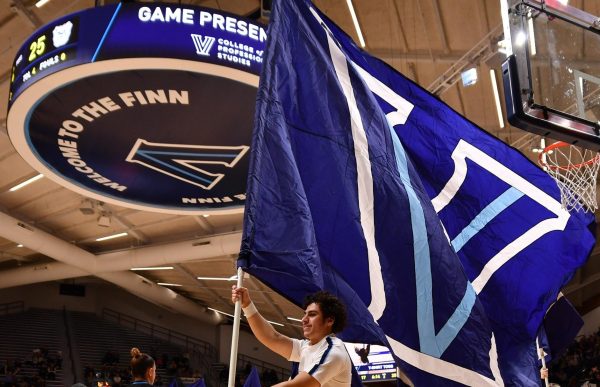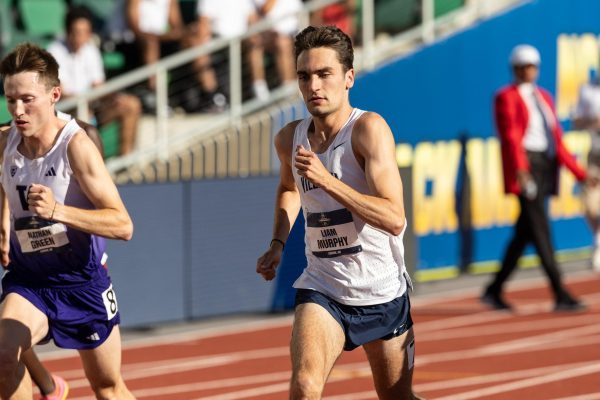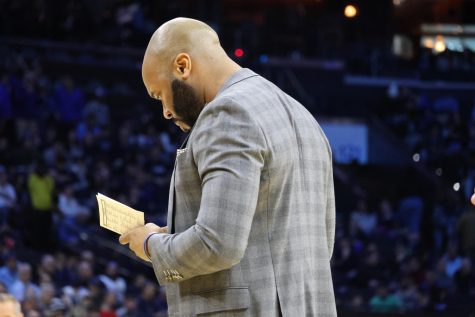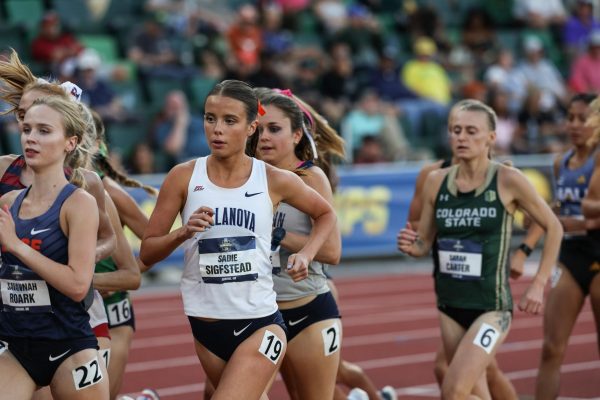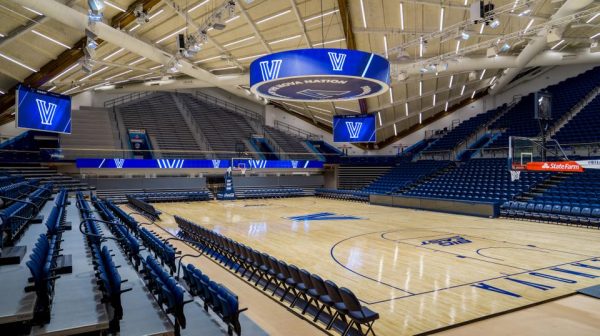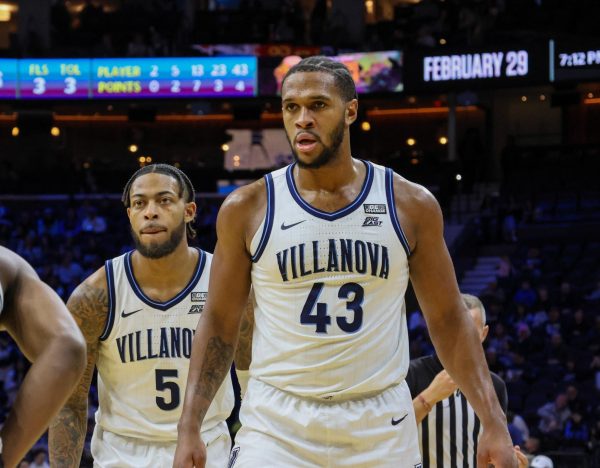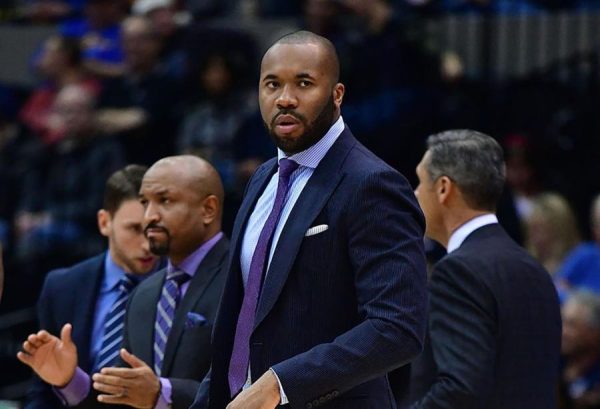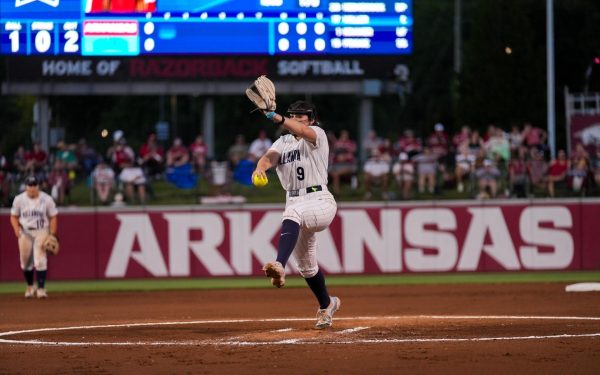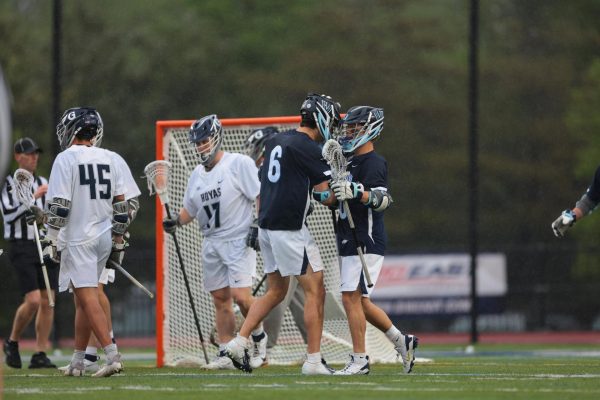Students Visit Phillies’ Business Analytics Night
Students Visit Phillies’ Business Analytics Night
September 25, 2018
On Monday, Sept. 17, the Philadelphia Phillies hosted their College Business Analytics Night. The event was opened to 200 students from local universities, and 20 Villanova students attended. The event began at 4 p.m. with a networking hour where students were encouraged to approach members of the Phillies business analytics team positioned around the room. Here, students had the opportunity to ask a variety of questions about career interests along with finding out how these individuals became involved in their current roles. Additionally, during this hour, students were invited to take a photo with the 1980 and 2008 World Series trophies alongside 1983 NLCS MVP Gary “Sarge” Matthews Sr. and spin a wheel for memorabilia.
Following the networking hour, Matthews gave advice to the students in the audience, speaking of both his story and that of his children in the world of baseball. His words were followed by a panel discussion that featured Charles Nixon, Director of Enterprise Business Intelligence & Data for Major League Baseball’s Office of the Commissioner, Josh Barbieri, Director of Business Analytics for the Phillies, Chris Pohl, Director of Ticket Technology and Development for the Phillies and Gregg Murphy, a Phillies broadcaster, who served as a moderator for the panel. To begin, Murphy took off his 2008 World Series ring and gave it to the audience. As the ring was being passed along, the panel fielded questions from students about their obstacles and breakthroughs along with their career path. They emphasized being in the right place at the right time and catching that opportunity.
Midway through the conversation, current Phillies reliever Austin Davis came to the front of the room and spoke about his experience with analytics from the player point of view. He even recalled an incident where an umpire had been seen referencing a scouting report written on a notecard nestled in his back pocket. Interestingly, this is common practice to improve pitching approach and defensive positioning, and many players in the Phillies organization have similar notecards. When asked how data analytics has influenced his confidence in his natural skills, Davis replied, “It’s the same game, but you know a lot more about it.” This emphasizes how players are embracing analytics but still maintaining faith in the skills that have gotten them to this level. Davis continued to say how “information helps develop the game plan but there are no absolutes.” He then referenced a particular instance where Kris Bryant lasered a first-pitch slider, even though the data suggested there was only a 10% chance he would swing at such a pitch. This demonstrates how analytical data can be useful, but is by no means definite, especially with respect to game tendencies.
After Davis departed to prepare for the game, the panel gave advice to the students on how to separate themselves in this competitive field. They put emphasis on work ethic, positivity and being able to listen to both peers and superiors. Additionally, Barbieri recommended taking up individual work and research beyond classroom learning and internship opportunities. He also advocated for learning a programing language and building up skills in data analysis.
As the panel wrapped up, the students went upstairs to the stadium level, stopped at the team store, and finally watched the Phillies take on the New York Mets. Through this experience, the students were able to learn more about business analytics within the sports world along with some of the processes to get involved. This is definitely a developing field with an increasing number of advanced metrics. Murphy himself said that ‘information’ is a buzzword within the industry, and teams are always looking to do more with the information at hand. The future looks bright for business analytics within the sports world, and these students are ready for what’s next.



